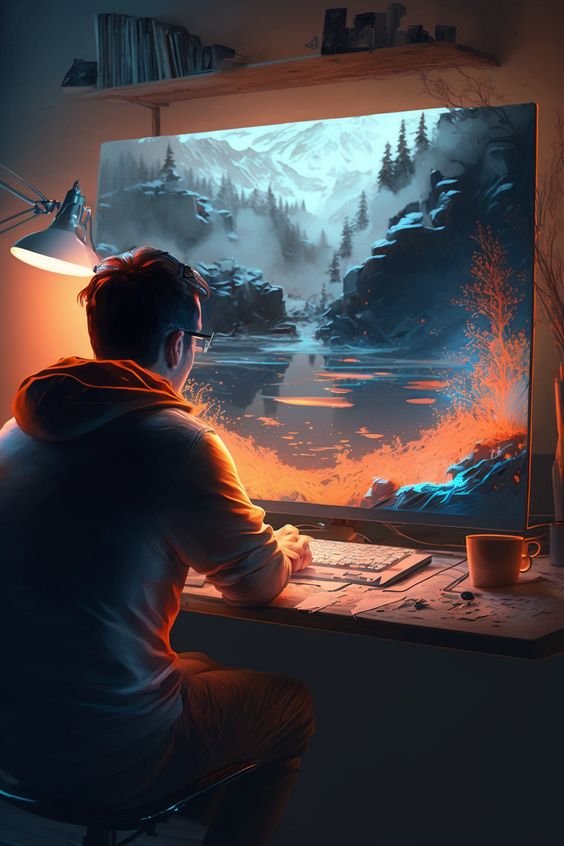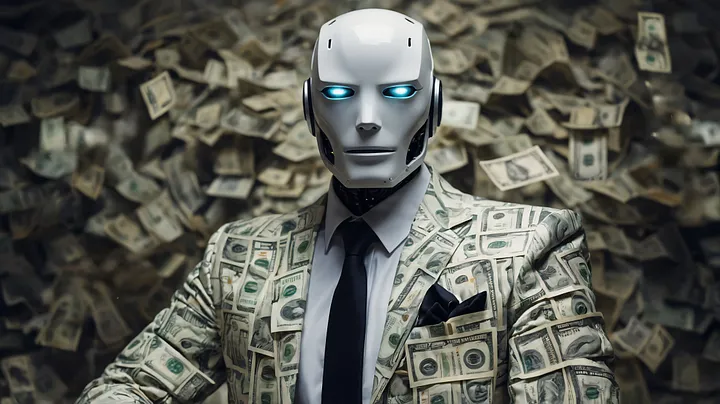How do AI art generators work?
Today we will explore the fascinating world of AI art generators and how they work...

How do AI art generators work? Artificial intelligence has revolutionised the way we create art and has become increasingly popular in recent years. AI art generators are now used by designers, artists and creative professionals around the world to create stunning, unique designs and artworks. But how do they work?
To understand how AI art generators work, we first need to know a little about AI. AI, or artificial intelligence, is a technology that can simulate human-like intelligence and decision-making processes. It uses machine learning algorithms to analyse data and recognise patterns, which it then uses to make decisions.
The Magic of Machine Learning: How AI Art Generators Work
AI art generators work in a similar way. They use a database of existing images, designs and patterns to analyse and create new artworks. They use a range of machine learning algorithms, including neural networks and deep learning, to analyse the data and create new designs.
Behind the Scenes of AI Art: Understanding the Technology
One of the most important features of AI art generators is their ability to learn from their mistakes. As they create new designs, they analyse the feedback they receive and use it to improve their algorithms. This means that their designs become more refined over time, resulting in incredibly detailed and intricate artwork.
Creating Art with Code: A Deep Dive into AI Art Generators
The process of creating AI artwork is usually divided into two phases: Training and Generation. In the training phase, the AI is fed thousands of images, designs and patterns that it uses to learn and recognise patterns. This data is usually categorised and labelled so that the AI can easily recognise and classify the different elements.
Exploring the Process of AI Art Generation
Once the AI app has reached a certain level of learning, it moves into the generation phase. The AI is given a set of parameters, such as style, colour and composition, and it creates new artworks based on these parameters. The AI may also be given certain instructions or constraints, such as a specific colour palette or size, to adhere to when creating new designs.
From Data to Design: A Technical Look at AI Art Generators
AI app art generators can create a variety of art styles, from abstract and surreal to realistic and traditional. It is even possible to create custom styles using transfer learning techniques, where the AI takes an existing style and adapts it to the new artwork.
Decoding the Algorithm: How AI Art Generators Produce Images
Overall, AI art generators are an incredibly powerful tool for artists and designers. They offer a wealth of creative options and possibilities and have the potential to change the way we think about art and design.
How do AI art generators work?

AI art generators use machine learning algorithms to create images or other forms of art. The process usually involves two main steps: training the AI model and generating new images.
Machine Creativity: The Science of AI Art Generation
During the training process, the AI model is fed a large data set of existing artworks, such as paintings or photographs. Using this data, the model learns patterns and features common to the artworks in the dataset. For example, the model can learn to recognise certain colours, textures or shapes that are often found in paintings of a certain era or style.
The Anatomy of an AI Art Generator: Understanding the Mechanics
Once the model has been trained, it can be used to create new images. This is usually done by giving the model a starting image or a set of parameters, such as the desired style or colour scheme. The model then uses its learned patterns and features to generate a new image that matches the given input.
The AI Artist's Canvas: An Overview of Art Generation with Machine Learning
There are many different types of AI algorithms that can be used for art generation, including Deep Learning, Convolutional Neural Networks (CNNs) and Generative Adversarial Networks (GANs). These algorithms are designed to learn and recognise patterns in data, and can be adapted to create new and unique artworks.
Breaking Down the Layers: How AI Art Generators Use Neural Networks to Create Art.






















